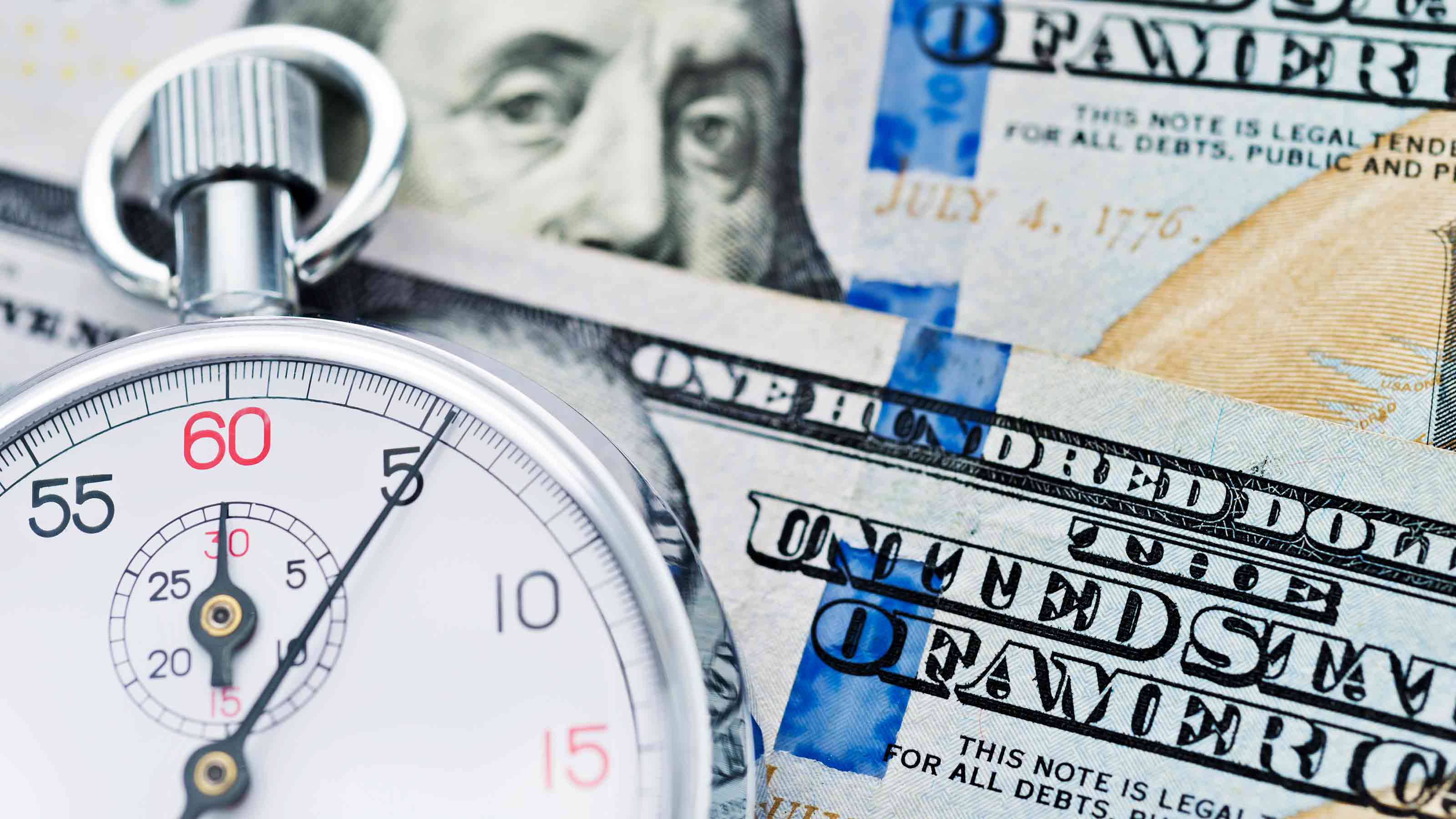Assessing Donated Items' Value
Here's how to find out how much clothes you give to charity are worth so you can write off your contribution on your tax return.

Profit and prosper with the best of Kiplinger's advice on investing, taxes, retirement, personal finance and much more. Delivered daily. Enter your email in the box and click Sign Me Up.
You are now subscribed
Your newsletter sign-up was successful
Want to add more newsletters?

Delivered daily
Kiplinger Today
Profit and prosper with the best of Kiplinger's advice on investing, taxes, retirement, personal finance and much more delivered daily. Smart money moves start here.

Sent five days a week
Kiplinger A Step Ahead
Get practical help to make better financial decisions in your everyday life, from spending to savings on top deals.

Delivered daily
Kiplinger Closing Bell
Get today's biggest financial and investing headlines delivered to your inbox every day the U.S. stock market is open.

Sent twice a week
Kiplinger Adviser Intel
Financial pros across the country share best practices and fresh tactics to preserve and grow your wealth.

Delivered weekly
Kiplinger Tax Tips
Trim your federal and state tax bills with practical tax-planning and tax-cutting strategies.

Sent twice a week
Kiplinger Retirement Tips
Your twice-a-week guide to planning and enjoying a financially secure and richly rewarding retirement

Sent bimonthly.
Kiplinger Adviser Angle
Insights for advisers, wealth managers and other financial professionals.

Sent twice a week
Kiplinger Investing Weekly
Your twice-a-week roundup of promising stocks, funds, companies and industries you should consider, ones you should avoid, and why.

Sent weekly for six weeks
Kiplinger Invest for Retirement
Your step-by-step six-part series on how to invest for retirement, from devising a successful strategy to exactly which investments to choose.
I plan to donate clothes to a charitable organization such as the Salvation Army. Where can I found out what the fair market value of the clothes -- as well as household items I plan to donate -- so I can write off my donation on my tax return? Does the new tax law change those rules?
As you mentioned, you will only be able to deduct the fair market value of the clothes and other items that you give. That's the depreciated value of used goods, such as the price you'd pay in a thrift shop rather than the cost of buying them new. And the new tax law did change the rules a bit. You can only take a charitable deduction for giving away items that are at least "good" condition, unless the item has been appraised at more than $500. The change took effect when the Pension Protection Act was signed into law on August 17.
"You can't donate your trash and get a tax deduction," says Christine Bragale, director of media relations for Goodwill, which has to discard about 5% of the clothing contributions received every year because it is in such bad condition. Bragale offers a helpful rule of thumb: "If you would give it to a relative or friend, then it's fit to donate," she says.
From just $107.88 $24.99 for Kiplinger Personal Finance
Become a smarter, better informed investor. Subscribe from just $107.88 $24.99, plus get up to 4 Special Issues

Sign up for Kiplinger’s Free Newsletters
Profit and prosper with the best of expert advice on investing, taxes, retirement, personal finance and more - straight to your e-mail.
Profit and prosper with the best of expert advice - straight to your e-mail.
Many people underestimate the amount they can deduct because they have no idea how to value the items. The Salvation Army has a useful valuation guide to help you determine the deductible value of your items, based on the cost of similar goods in its stores. The site lists low and high values, and it's up to you to decide where your items fit based on condition. Another good tool is TurboTax's It's Deductible software, which gets its figures from research at resale stores and eBay data. It also automatically fills in IRS Form 8283 when your noncash donations exceed $500.
Profit and prosper with the best of Kiplinger's advice on investing, taxes, retirement, personal finance and much more. Delivered daily. Enter your email in the box and click Sign Me Up.

As the "Ask Kim" columnist for Kiplinger's Personal Finance, Lankford receives hundreds of personal finance questions from readers every month. She is the author of Rescue Your Financial Life (McGraw-Hill, 2003), The Insurance Maze: How You Can Save Money on Insurance -- and Still Get the Coverage You Need (Kaplan, 2006), Kiplinger's Ask Kim for Money Smart Solutions (Kaplan, 2007) and The Kiplinger/BBB Personal Finance Guide for Military Families. She is frequently featured as a financial expert on television and radio, including NBC's Today Show, CNN, CNBC and National Public Radio.
-
 Dow Leads in Mixed Session on Amgen Earnings: Stock Market Today
Dow Leads in Mixed Session on Amgen Earnings: Stock Market TodayThe rest of Wall Street struggled as Advanced Micro Devices earnings caused a chip-stock sell-off.
-
 How to Watch the 2026 Winter Olympics Without Overpaying
How to Watch the 2026 Winter Olympics Without OverpayingHere’s how to stream the 2026 Winter Olympics live, including low-cost viewing options, Peacock access and ways to catch your favorite athletes and events from anywhere.
-
 Here’s How to Stream the Super Bowl for Less
Here’s How to Stream the Super Bowl for LessWe'll show you the least expensive ways to stream football's biggest event.
-
 PODCAST: Decoding ESG Investing with Ellen Kennedy
PODCAST: Decoding ESG Investing with Ellen KennedyBecoming an Investor Environmental, social and governance investing is simpler than it sounds, and has a profitable track record to boot.
-
 Why Your Tax Refund Could Be Bigger This Year
Why Your Tax Refund Could Be Bigger This Yeartax refunds Expanded credits and stimulus checks are boosting some tax refunds this year. But if you get a big refund, consider investing it.
-
 Tax Tips for Last-Minute Filers
Tax Tips for Last-Minute FilersFeature Atlanta Falcons linebacker and Kiplinger contributing editor Brandon Copeland provides a few tax tips for people filing close to 2022's deadline.
-
 How to Get Your Tax Refund Faster
How to Get Your Tax Refund Fastertax refunds The IRS already has a huge tax return backlog. Fortunately, there are a few things you can do to speed up your tax refund.
-
 Do I Have to Pay Taxes on Gains From Stocks?
Do I Have to Pay Taxes on Gains From Stocks?Becoming an Investor If you enjoyed stock market success in 2021, you might owe the IRS. Here's our quick, easy guide to paying taxes on your stock gains.
-
 Should You Do Your Own Taxes or Hire a Professional?
Should You Do Your Own Taxes or Hire a Professional?taxes Are you a prime candidate to go it alone? Here are two types of people who should consider doing their own taxes, and two types who should probably get some help.
-
 It’s Not Too Late to Boost Retirement Savings for 2018
It’s Not Too Late to Boost Retirement Savings for 2018retirement Some retirement accounts will accept contributions for 2018 up until the April tax deadline.
-
 How to Correct a Mistake on Your RMDs from IRAs
How to Correct a Mistake on Your RMDs from IRAsretirement If you didn't take out the correct required minimum distribution because your brokerage firm made a mistake, the IRS may show some leniency.